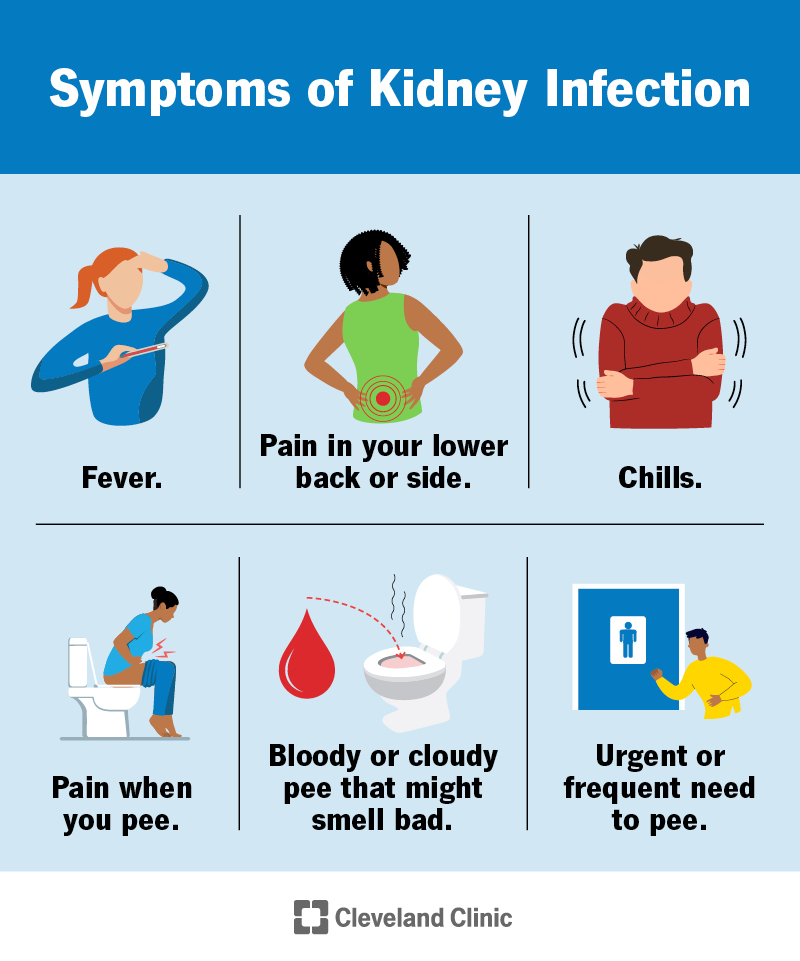Kidney Stones vs UTI: Essential Info on Treatment Choices and Avoidance
Kidney Stones vs UTI: Essential Info on Treatment Choices and Avoidance
Blog Article
Checking Out the Manifestations and Causes of Kidney Stones in Contrast to Urinary Tract Infections: A Comprehensive Guide
The expedition of kidney rocks and urinary system infections (UTIs) exposes a complex interplay of symptoms and underlying causes that necessitate cautious exam. What are the crucial differences in their symptoms, and how might these inform therapy approaches?
Overview of Kidney Stones
Kidney rocks, likewise referred to as renal calculi, type when specific materials in the urine crystallize and accumulation, leading to the development of difficult deposits within the kidneys. These stones can differ in dimension, varying from a grain of sand to a golf round, and can be composed of numerous products, one of the most usual being calcium oxalate, uric acid, struvite, and cystine. The development of kidney stones is affected by several variables, including dietary habits, liquid intake, and genetic predisposition.
Signs of kidney rocks may include severe pain in the back or side, blood in the urine, nausea or vomiting, and constant peeing, specifically as the rock relocates with the urinary system. Medical diagnosis normally includes imaging studies such as ultrasound or CT scans, together with urinalysis to recognize the stone's structure.
Therapy choices differ based upon the dimension and kind of stone, as well as the severity of signs and symptoms (Kidney Stones vs UTI). Little stones may pass naturally with raised fluid consumption, while larger rocks might require medical interventions such as lithotripsy or surgical elimination. Understanding the pathophysiology and threat elements linked with kidney stones is vital for reliable prevention and monitoring
Summary of Urinary System Tract Infections
Urinary system tract infections (UTIs) are typical microbial infections that impact any type of component of the urinary system, consisting of the kidneys, ureters, bladder, and urethra. They mainly occur when bacteria, typically from the intestinal system, enter the urinary system, leading to swelling and infection.
The occurrence of UTIs is notably higher in women than males, largely as a result of physiological differences, such as a much shorter urethra. Danger elements include sex, specific contraceptive techniques, urinary retention, and dehydration. The medical diagnosis of UTIs is generally confirmed via urine tests, which might disclose the visibility of germs, leukocyte, or red blood cells.

Signs of Kidney Stones
The pain related to kidney rocks can manifest in numerous ways, frequently leading individuals to look for medical attention. One of the most common signs and symptoms is extreme pain, commonly localized in the lower back or side, which might emit to the abdominal area or groin. This pain, often called sharp or cramping, can take place instantly and may vary in intensity.
Additionally, people might experience hematuria, or blood in the pee, which can range from microscopic total up to noticeable staining. This sign may be come with by adjustments in urinary system habits, such as increased frequency or necessity, along with pain during urination. Nausea or vomiting and vomiting are likewise widespread, often resulting from the body's reaction to intense pain.
In some instances, individuals may experience high temperature and cools, specifically if a secondary infection creates as a result of the obstruction brought on by the rocks. On the whole, the combination of serious discomfort, hematuria, modified urinary patterns, and click to find out more stomach symptoms can provide significant understanding right into the existence of kidney rocks, necessitating punctual clinical analysis and intervention. Understanding these signs and symptoms is vital for timely medical diagnosis and effective administration of the condition.
Signs of Urinary System Tract Infections
Infections within the urinary system system typically provide a variety of distinctive signs that can significantly impact day-to-day live. One of the most common signs and symptoms include a relentless impulse to pee, typically come with by a burning experience during urination, called dysuria. People might likewise experience boosted regularity of urination, creating little quantities of urine each time.
Other significant signs consist of cloudy or foul-smelling pee, which might show the existence of germs or pus. In many cases, pee might appear red or pink as a result of the existence of blood, a condition recognized as hematuria. Furthermore, people may experience pelvic pain or pressure, which can further worsen the feeling of seriousness.
Systemic signs and symptoms may additionally show up, such as fever, chills, and tiredness, specifically if the infection has actually risen to the kidneys. It is important to identify these signs early, as unattended urinary system tract infections can cause more extreme problems. Kidney Stones vs UTI. Trigger medical attention is recommended when these signs are observed, permitting proper analysis assessment and treatment to ease pain and protect against additional wellness problems
Reasons For Each Problem
Often, kidney stones and urinary system infections develop from distinctive yet occasionally overlapping reasons that can impact people in different ways. Kidney rocks commonly create as a result of metabolic aspects, dietary options, and hereditary predispositions. Enhanced levels of calcium, oxalate, or uric acid in the urine can bring about rock development. Dehydration, inadequate fluid consumption, and high-sodium diet plans can intensify these conditions, advertising formation within the urinary system.

Comprehending these distinctive reasons is vital for prevention and treatment. Kidney Stones vs UTI. While way of life adjustments might minimize the threat of kidney stones, appropriate hygiene and prompt therapy of urinary tract infections are important for reducing their reappearance and connected complications
Conclusion
In recap, kidney stones and urinary system infections present distinct signs and underlying reasons. Kidney rocks are identified by extreme pain and metabolic elements, while urinary system tract infections mostly involve microbial infections resulting in urinary seriousness and pain. Although both conditions can lead to hematuria, their development mechanisms vary dramatically. Comprehending these differences is vital for Get the facts reliable diagnosis and therapy, ultimately boosting individual end results for those influenced by either problem.
The expedition of kidney stones and urinary system system infections (UTIs) discloses an intricate interplay of signs and underlying reasons that require cautious examination.Urinary system system infections (UTIs) are typical microbial infections that influence any type of component of the urinary system, including the kidneys, ureters, bladder, and urethra.Regularly, kidney stones and urinary system tract infections arise from unique yet often overlapping reasons that can influence individuals differently.In summary, kidney stones and urinary system system infections present distinctive symptoms and underlying reasons. Kidney rocks are characterized by serious pain and metabolic aspects, while urinary system system infections largely include bacterial infections leading to urinary system urgency and discomfort.
Report this page